Driving a company car in Las Vegas and getting into an accident raises many questions. Who is at fault? Who will pay for the damages? This guide breaks down everything you need to know. It’s about handling accidents in company vehicles in Las Vegas. It covers figuring out who is responsible and dealing with insurance.
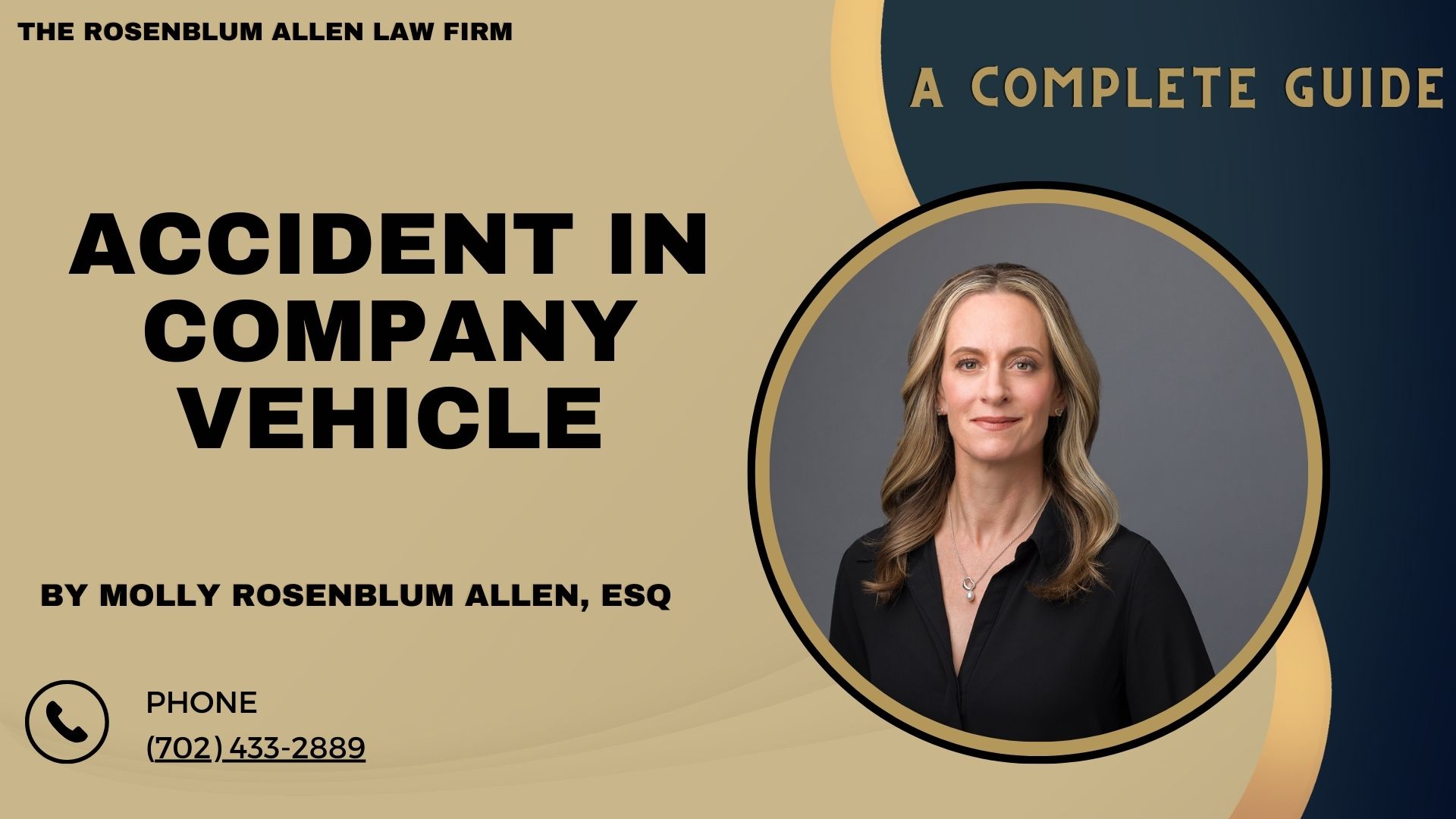
 Understanding Company Vehicle Use in Las Vegas
Understanding Company Vehicle Use in Las Vegas
What Is a Company Vehicle?
A company vehicle is any transport provided by an employer for work use. This includes cars, trucks, and vans used for work. They are for for business tasks, client meetings, and sometimes for commuting.
When Do Company Vehicles Get Used?
For work tasks: Attending meetings, site visits, or performing services.
For commuting: If allowed, use the vehicle to travel to and from work.
For emergencies: When unexpected work tasks come up.
Legal Rules for Using Company Vehicles in Nevada
In Nevada, there are rules about using company vehicles. Employers must keep vehicles safe and in good shape. Employees should use these vehicles wisely, especially when driving to work.
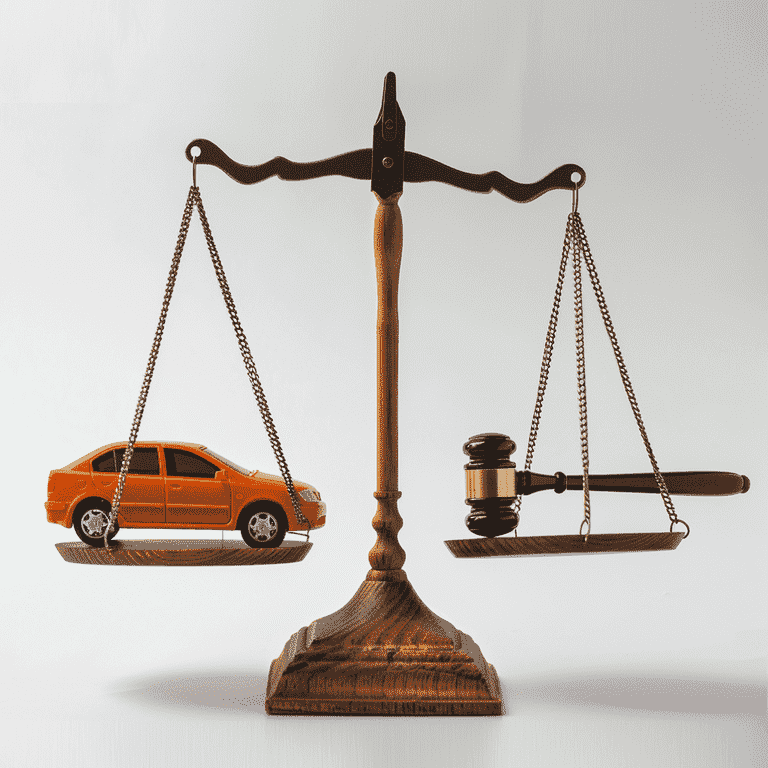
Determining Who Is Responsible for Accidents
Understanding Who Pays
When Employers Are Responsible
If an employee has an accident while working, the employer might need to pay. This is due to a rule called “vicarious liability.”
When It Comes Down to Fault
Figuring out who caused the accident is vital. In Las Vegas, the person at fault or their insurance usually covers the costs.
What Influences Who Is Responsible
Employee or Independent Contractor?
Employee: The employer is more likely to be responsible.
Independent Contractor: It must be clarified and might depend on the contract.
Was It During Work Hours?
Yes: The employer could be responsible.
No: The employee might be accountable if it was a personal errand.
Was the Vehicle Used for Work?
Yes: The employer might pay.
No: If it was for personal use, the employee might pay, depending on the company’s rules.
Driving a company vehicle in Las Vegas means you need to know who pays if there’s an accident. This guide starts you on the right path. It has clear explanations of responsibility and insurance.
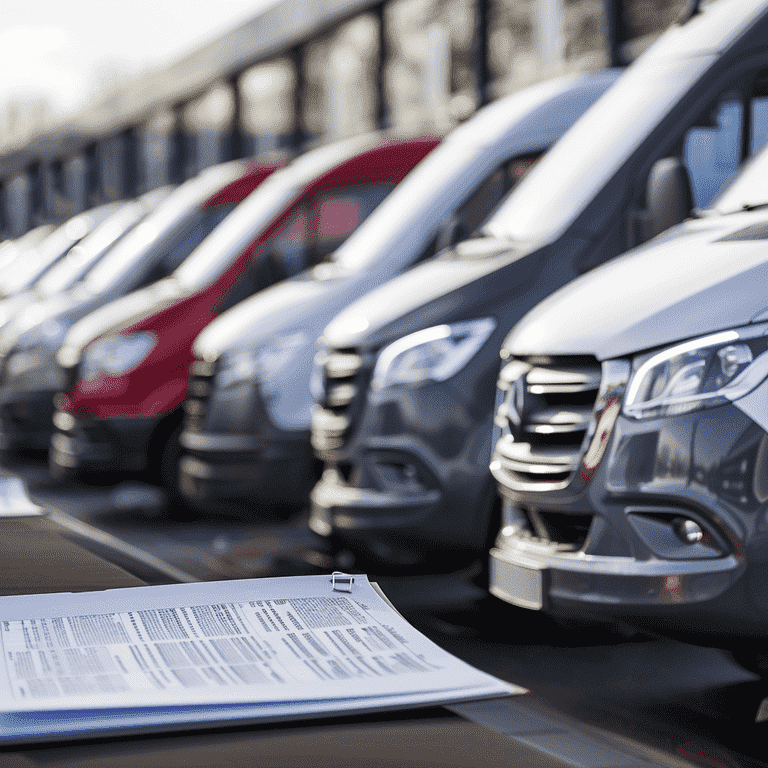
Insurance Coverage for Company Vehicle Accidents
Understanding insurance after an accident in a company vehicle is crucial. Here’s a simplified breakdown.
Types of Insurance for Company Vehicles
Insurance is your backup plan. Here are the basics:
Commercial Auto Insurance: Covers business vehicles. It’s your go-to for accidents.
Personal Auto Insurance: May not cover business use. Check your policy.
Uninsured Motorist Coverage: Helps if the other driver can’t pay.
How Insurance Determines Who Pays
Insurance companies look at a few key things:
Who Caused the Accident?: In Las Vegas, the person at fault usually pays.
Making a Claim: Report the accident to your insurer quickly. They’ll guide you.
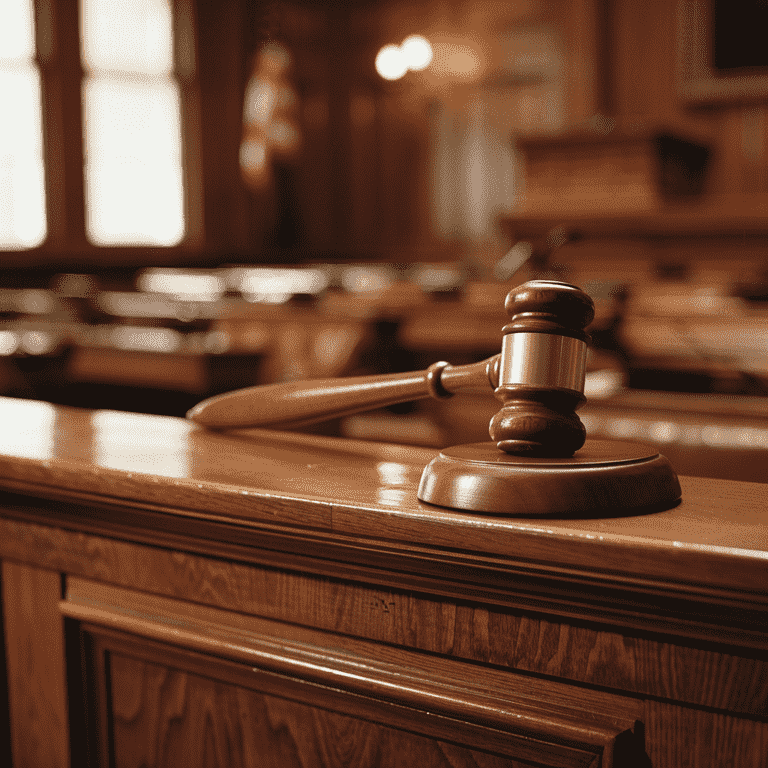
Legal Actions and Compensation
When insurance isn’t enough, legal action might be the next step.
Right After an Accident
Quick actions can help your case:
Report It: Call the police. Get a report.
Document Everything: Take photos and get witness details.
See a Doctor: Hidden injuries are common. Get checked out.
Considering a Lawsuit
Here’s what to know about the court:
When to Think About It: If insurance won’t cover your costs.
The Process: Find a lawyer skilled in company vehicle accidents.
Possible Compensation: Covers repairs, medical costs, and sometimes pain and suffering.
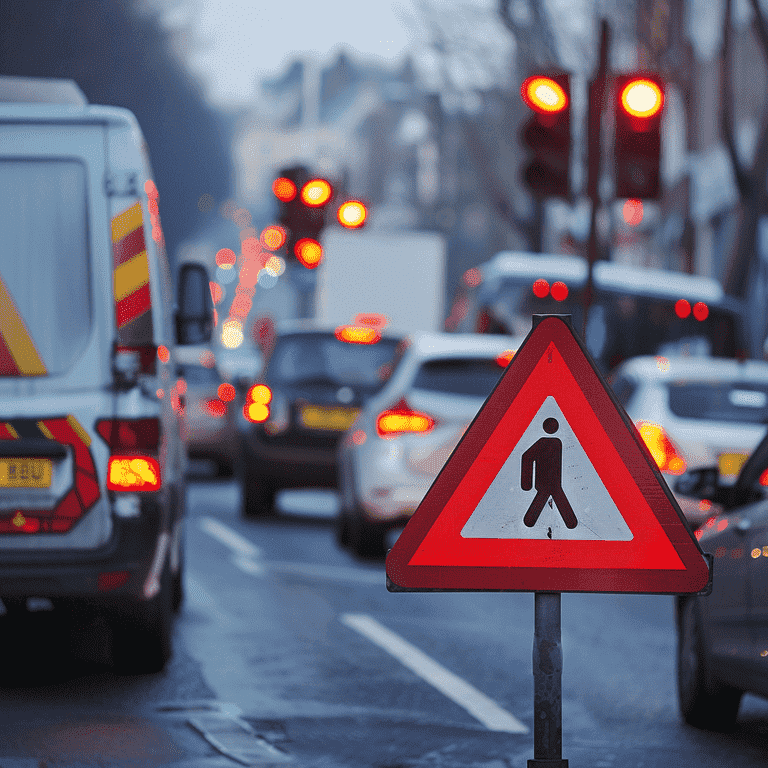
Prevention and Best Practices
Preventing accidents is vital. Here’s how both sides can help:
Employers
Safety first:
Vehicle Maintenance: Keep cars in good condition.
Driving Policy: Teach safe driving practices.
Employees
You play a big part, too:
Know the Policy: Understand your company’s vehicle rules.
Stay Alert: Avoid distractions and obey traffic laws.
Safety is a joint effort. Using company vehicles can be safer. This is true with the right knowledge and actions. This guide offers clear steps to manage the aftermath of an accident. It aims to make the process simple.
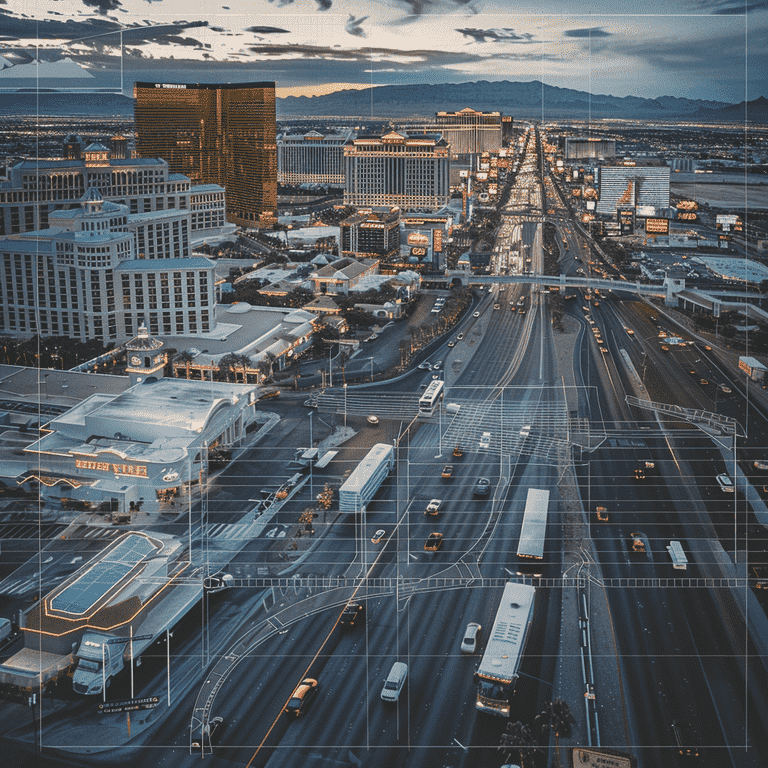
Case Studies: Company Vehicle Accidents in Las Vegas
Real-life situations show us what to do (and not do) after a company vehicle accident. Here are a couple of stories from Las Vegas:
The Downtown Delivery Dilemma
A delivery van rear-ended another car during a busy day downtown. The driver was working. The company’s insurance covered the damages. This was thanks to their full commercial auto policy. This case shows that the right insurance for your business vehicles is essential.
The Commute Crash Case
Using the company car for a personal errand after hours, an employee got into a fender bender. Since the trip wasn’t work-related, the employee’s insurance had to step in. It’s a clear reminder to understand your company’s policy on vehicle use outside of work.
These stories show real outcomes and lessons. They are about navigating company vehicle accidents in Las Vegas. Always know your insurance coverage and when it applies.
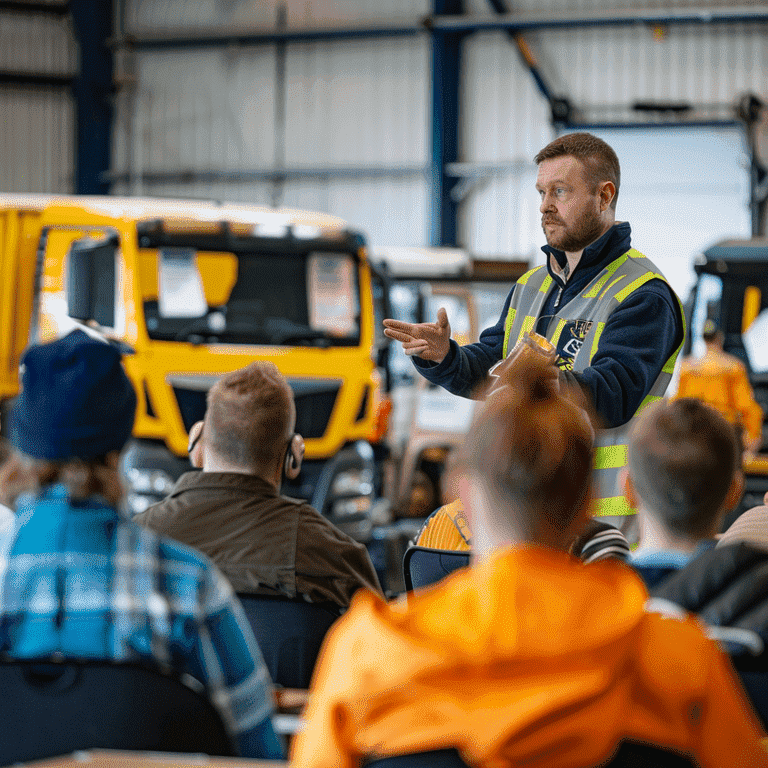
Prevention and Best Practices for Employers and Employees
Avoiding accidents is easier with the proper knowledge and habits. Here’s how to stay safe on the road.
For Employers
Creating a safe driving culture is essential. Consider these steps:
Vehicle Maintenance: Regular checks and repairs keep vehicles safe.
Driving Training: Offer courses on defensive driving and safety.
Clear Policies: Make sure everyone knows the rules for using company vehicles.
For Employees
Your actions can prevent accidents. Keep these tips in mind:
Understand Policies: Know when and how you can use company vehicles.
Drive Safely: Always follow traffic laws and avoid distractions.
Report Issues: If you notice something wrong with the car, tell your employer immediately.
Both employers and employees have roles in preventing accidents. Work together. Follow policies. Promote safe driving. You can help keep the roads safe for everyone.

Breaking It All Down
Accidents in company vehicles bring up many questions, especially about who pays. This guide clarified confusion. It offered insights into liability, insurance, legal actions, and prevention. Remember, safety starts with understanding the rules and your duties. This is true whether you are an employer or an employee. Stay informed, stay safe, and drive wisely in Las Vegas.

Frequently Asked Questions
What should I do if the company vehicle is totaled in an accident?
Immediately contact your employer and follow their accident procedure. The company’s insurer will assess the situation and determine the next steps based on the policy.
Can an employee be personally liable for damages in a company vehicle accident?
Yes, if an employee drove negligently or for personal errands without permission, they can be held personally liable for damages.
How does the insurance process work if the other driver is at fault?
Your insurance company may initially handle repairs and costs and then seek repayment from the at-fault driver’s insurance through subrogation.
What happens if an employee doesn’t report an accident in a company vehicle?
Failure to report an accident can result in employer discipline and complications with insurance claims, potentially making the employee liable for damages.
Are employees covered by workers’ compensation if injured in a company vehicle accident?
If the employee was performing job-related duties at the time of the accident, they may be eligible for workers’ compensation for their injuries.
How do I prove I was using the company vehicle for work at the time of the accident?
Maintain detailed records of your work schedule, tasks, and routes. Communications with your employer about work-related tasks can also serve as evidence.
Can I use my insurance for a company vehicle accident?
Generally, the company’s commercial auto insurance is primary. Your insurance may not cover accidents in a company vehicle, especially if the car is not listed on your policy.
What if the accident was caused by mechanical failure of the company vehicle?
The employer could be liable for neglecting vehicle upkeep if the accident resulted from a lack of maintenance or known mechanical issues.
Are passengers covered under the company’s vehicle insurance policy?
Insurance coverage for passengers depends on the terms of the policy. Reviewing the policy details is essential.
How long do I have to file a claim after an accident in a company vehicle?
Time limits for filing claims can vary by insurance policy and state laws. It’s crucial to report the accident to your employer and the insurance company promptly.

Glossary
Commercial Auto Insurance: A type of insurance policy that covers vehicles owned and used by a business for work-related purposes. It provides liability and physical damage coverage for accidents involving these vehicles.
Vicarious Liability: It is a legal principle where employers are held responsible for their employees’ actions or negligence while performing job-related duties.
Negligence: A failure to behave with the level of care that someone of ordinary prudence would have exercised under the same circumstances. In the context of driving, it refers to behaviors that could lead to accidents, such as speeding or not following traffic laws.
Scope of Employment: Refers to the actions of an employee that are within the range of duties authorized by the employer. Activities conducted within the scope of employment are typically covered by the employer’s insurance and liability protections.
Personal Use: The use of a company vehicle for non-work-related activities. Depending on the terms and conditions, personal use may not be covered under the company’s commercial auto insurance policy.
Subrogation: The process by which an insurance company seeks reimbursement from the party at fault for payments made to cover damages or losses. This process can recover the costs of repairs, medical expenses, and other claims paid out.
Workers’ Compensation: A form of insurance providing wage replacement and medical benefits to employees injured during employment. This coverage is in exchange for the mandatory relinquishment of the employee’s right to sue their employer for negligence.
Liability: Refers to the state of being responsible for something, especially in terms of legal or financial obligations. In vehicle accidents, liability determines who is at fault and responsible for damages.
Uninsured Motorist Coverage: Insurance protection covers damages and injuries resulting from an accident with a driver who does not have insurance. This coverage is part of an individual’s auto insurance policy.
Physical Damage Coverage: Part of an auto insurance policy that covers damage to the insured vehicle. It includes collision coverage for accidents with other vehicles or objects and comprehensive coverage for non-collision incidents, such as theft or natural disasters.

Additional Resources for You
Las Vegas Personal Injury Attorney: For those suffering from injuries due to others’ negligence. Learn more.
Las Vegas Car Accident Attorney: If you’ve been involved in a car accident and need effective legal assistance. Learn more.
Motorcycle Accident Lawyer Las Vegas: Specialized support for motorcycle riders involved in accidents. Learn more.
Wrongful Death Lawyer Las Vegas: Compassionate legal services for families dealing with the loss of a loved one. Learn more.
Truck Accident Attorney Las Vegas: Expertise in handling the complexities of truck accident cases. Learn more.
Las Vegas Drunk Driving Accident Attorney: Assistance for victims of drunk driving accidents. Learn more.
Las Vegas Slip and Fall Attorney: Help for those injured in slip and fall accidents. Learn more.
These resources are designed to offer support and legal expertise in navigating the aftermath of accidents and injuries. Molly Rosenblum Allen, Esq., and the team are committed to providing the help you need to secure the best possible outcome for your situation.

Outside Resources for You
American Bar Association (ABA): A comprehensive resource for finding legal help, understanding your legal rights, and accessing various legal resources. Visit ABA
National Highway Traffic Safety Administration (NHTSA): Offers safety tips, accident statistics, and resources for dealing with the aftermath of road accidents. Visit NHTSA
American Association for Justice (AAJ): Provides resources for those seeking justice in personal injury and other civil cases. Visit AAJ
National Safety Council (NSC): Offers information on workplace safety, road safety, and first aid, helping to prevent injuries and accidents. Visit NSC
United States Department of Labor Occupational Safety and Health Administration (OSHA): Provides resources for understanding and complying with workplace health and safety regulations. Visit OSHA
Insurance Information Institute (III): Offers insights into various types of insurance, including auto and workers’ compensation, helping you navigate insurance matters. Visit III
National Association of Insurance Commissioners (NAIC): Provides information on insurance regulations and offers tools for understanding your insurance policies and rights. Visit NAIC

A Special Message from Our Lead Attorney, Molly Rosenblum Allen, Esq

I want to extend my heartfelt thanks for exploring the legal resources we’ve provided. You dedicate yourself to understanding your legal rights and options. I admire that, and I’m grateful for the chance to join your journey.
Please feel free to reach out if you have any further questions or concerns about your legal matters. I’m here to help. You can schedule a free consultation by calling our office at (702) 433-2889. During this consultation, we can detail your case and determine the best path forward.




